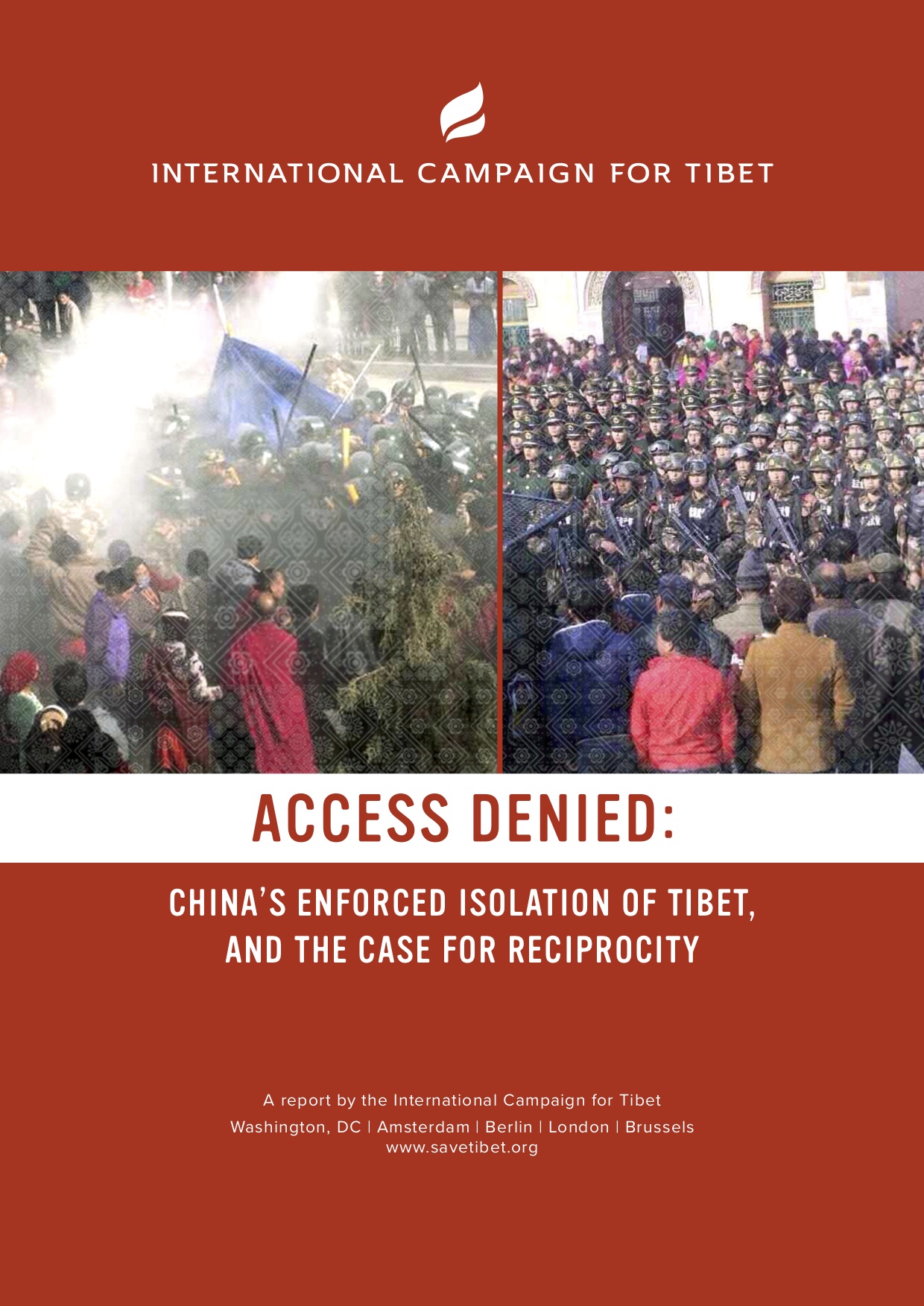Access Denied: China’s enforced isolation of Tibet, and the case for reciprocity
A new report by the International Campaign for Tibet calls for a more robust international approach on Tibet, based on the principle of reciprocity and an emerging awareness that China’s increasing authoritarian influence under Xi Jinping has extended beyond the borders of the PRC. This influence threatens to subvert and reshape our democracies in ways that pose a serious threat to our shared future.
China promotes Tibet as being open to the world, and tells foreign governments and journalists that they should see the world’s highest and largest plateau for themselves. But multiple requests by governments to visit Tibet have been refused in recent years, in contravention of usual diplomatic practice between countries and international organizations, and journalists reporting on Tibet have been threatened, detained, and expelled from the PRC. While Tibetans are “locked in” to Tibet and international observers are locked out, there has been an upsurge in the number of Chinese official delegations that have been sent abroad to “tell the world the story of Tibet in China.”
Matteo Mecacci, President of the International Campaign for Tibet, said: “Chinese leaders are seeking to enforce complete isolation on Tibet, often described as being worse than in North Korea, where at least some foreign media are based. Independent international observers are shut out of Tibet, or allowed to visit only under strictly controlled circumstances, while numerous delegations of Party officials face no obstacles in travelling to Western democracies to spread their propaganda.
As the United States and the international community grapple with China’s economic and military ascension to the world stage, well beyond the Asian continent, there is a stronger case to be made than ever to push for the respect of human and civil rights within the PRC, in line with crucial US and international values and security interests.
A bipartisan bill introduced in the US Congress, the Reciprocal Access to Tibet Act, seeks reciprocity for US citizens in going to Tibet just as Chinese have free access to the United States. If US journalists, diplomats, journalists will continue to be denied access to Tibet, the Chinese officials responsible for implementing those policies would then be banned from entering the US. Meanwhile, European leaders and Parliamentarians have referred to reciprocity as a key principle in terms of their bilateral relations with China.
Tibet’s geopolitical significance is such that it deserves greater prominence in world affairs. It is incumbent upon our governments and the international community to begin insisting upon the diplomatic principle of reciprocity in their dealings with the PRC, in order to address the asymmetry of authoritarian influence not only in Tibet and across China, but also in our own societies.”
The International Campaign for Tibet reports:
- Nearly three times the number of Party-state organized delegations have been allowed free access to Western countries over the past ten years compared to Western government representatives allowed to visit Tibet. This is an integral part of China’s strategic information operations, designed to manipulate and influence perceptions of target audiences in Western countries on Tibet and the Dalai Lama.
- Foreign journalists are almost without exception denied access to Tibet, other than on strictly controlled official tours, and can be expelled from China for simply questioning or criticizing Party policies on what the Party views as “sensitive issues”. Yet there are significant and increasing numbers of Chinese journalists from the Communist Party-controlled media operating in global capitals spreading propaganda in our own languages without interference.
- China’s propaganda efforts to ensure it controls the narrative on Tibet, both inside and out, have been intensified, described as a “new historical starting point” to be strengthened by the Party state in 2018.
- In an unprecedented development, mass Chinese domestic tourism across Tibet now coexists with the untrammelled powers of a security state engaged in the most widespread political crackdown in a generation. While Chinese tourists are increasingly free to come and go to the plateau, usually escorted in groups by state-trained guides, Tibetans themselves face unprecedented restrictions on their movement and communications with the outside world.
The International Campaign for Tibet report, ‘Access Denied: China’s enforced isolation of Tibet, and the case for reciprocity’, published on May 9, 2018, is available here:
